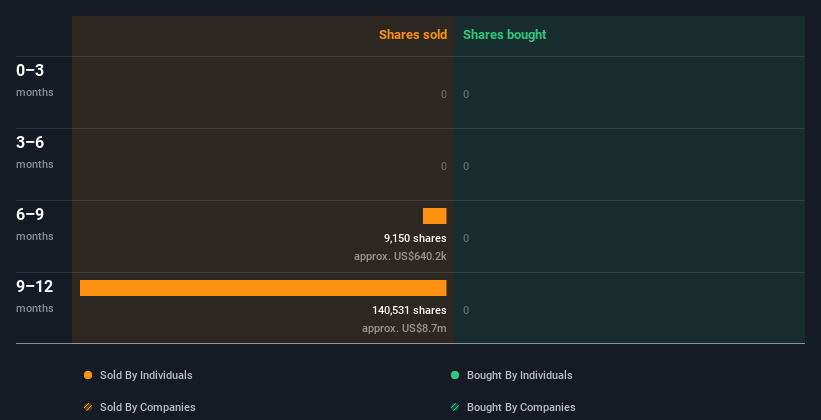- United States
- /
- Oil and Gas
- /
- NYSE:DVN
Possible bearish signals as Devon Energy Corporation (NYSE:DVN) insiders disposed of US$9.1m worth of stock

The fact that multiple Devon Energy Corporation (NYSE:DVN) insiders offloaded a considerable amount of shares over the past year could have raised some eyebrows amongst investors. When analyzing insider transactions, it is usually more valuable to know whether insiders are buying versus knowing if they are selling, as the latter sends an ambiguous message. However, shareholders should take a deeper look if several insiders are selling stock over a specific time period.
While insider transactions are not the most important thing when it comes to long-term investing, we would consider it foolish to ignore insider transactions altogether.
View our latest analysis for Devon Energy
The Last 12 Months Of Insider Transactions At Devon Energy
Over the last year, we can see that the biggest insider sale was by the Executive VP & CFO, Jeffrey Ritenour, for US$3.2m worth of shares, at about US$58.35 per share. That means that an insider was selling shares at slightly below the current price (US$62.21). We generally consider it a negative if insiders have been selling, especially if they did so below the current price, because it implies that they considered a lower price to be reasonable. While insider selling is not a positive sign, we can't be sure if it does mean insiders think the shares are fully valued, so it's only a weak sign. We note that the biggest single sale was only 16% of Jeffrey Ritenour's holding.
Insiders in Devon Energy didn't buy any shares in the last year. The chart below shows insider transactions (by companies and individuals) over the last year. By clicking on the graph below, you can see the precise details of each insider transaction!

For those who like to find winning investments this free list of growing companies with recent insider purchasing, could be just the ticket.
Insider Ownership
For a common shareholder, it is worth checking how many shares are held by company insiders. Usually, the higher the insider ownership, the more likely it is that insiders will be incentivised to build the company for the long term. Devon Energy insiders own 0.7% of the company, currently worth about US$300m based on the recent share price. I like to see this level of insider ownership, because it increases the chances that management are thinking about the best interests of shareholders.
So What Does This Data Suggest About Devon Energy Insiders?
The fact that there have been no Devon Energy insider transactions recently certainly doesn't bother us. While we feel good about high insider ownership of Devon Energy, we can't say the same about the selling of shares. So these insider transactions can help us build a thesis about the stock, but it's also worthwhile knowing the risks facing this company. At Simply Wall St, we've found that Devon Energy has 3 warning signs (1 is a bit unpleasant!) that deserve your attention before going any further with your analysis.
Of course Devon Energy may not be the best stock to buy. So you may wish to see this free collection of high quality companies.
For the purposes of this article, insiders are those individuals who report their transactions to the relevant regulatory body. We currently account for open market transactions and private dispositions, but not derivative transactions.
New: Manage All Your Stock Portfolios in One Place
We've created the ultimate portfolio companion for stock investors, and it's free.
• Connect an unlimited number of Portfolios and see your total in one currency
• Be alerted to new Warning Signs or Risks via email or mobile
• Track the Fair Value of your stocks
Have feedback on this article? Concerned about the content? Get in touch with us directly. Alternatively, email editorial-team (at) simplywallst.com.
This article by Simply Wall St is general in nature. We provide commentary based on historical data and analyst forecasts only using an unbiased methodology and our articles are not intended to be financial advice. It does not constitute a recommendation to buy or sell any stock, and does not take account of your objectives, or your financial situation. We aim to bring you long-term focused analysis driven by fundamental data. Note that our analysis may not factor in the latest price-sensitive company announcements or qualitative material. Simply Wall St has no position in any stocks mentioned.
About NYSE:DVN
Devon Energy
An independent energy company, engages in the exploration, development, and production of oil, natural gas, and natural gas liquids in the United States.
Undervalued with adequate balance sheet.
Similar Companies
Market Insights
Community Narratives




